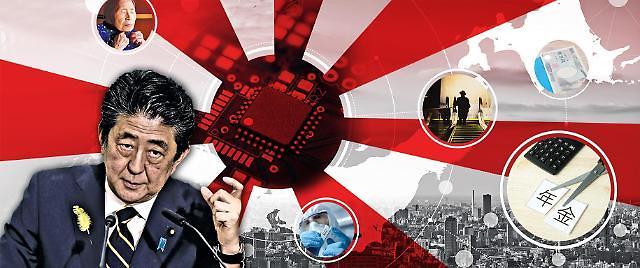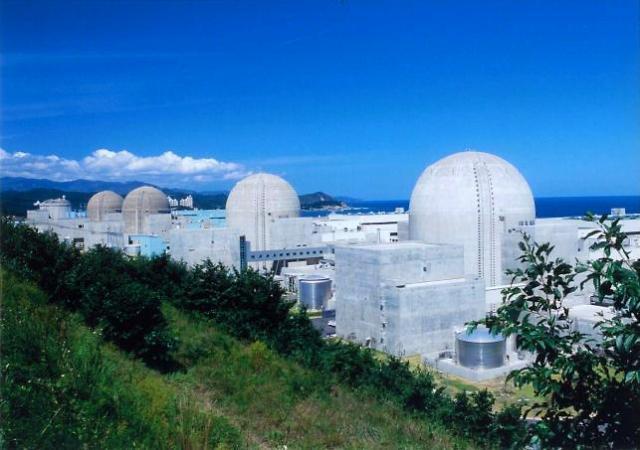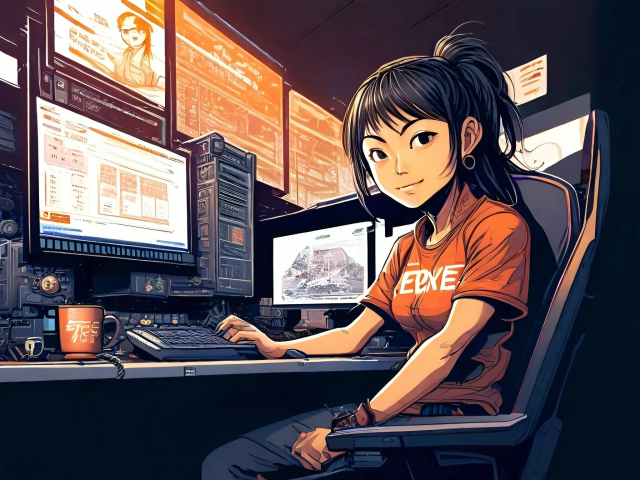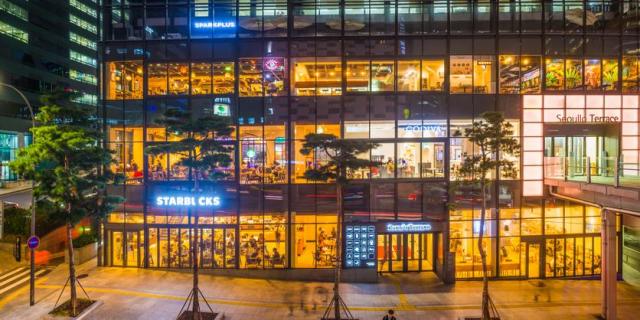
[Aju News DB]
SEOUL -- Where will be the final destination of Japanese Prime Minister Shinzo Abe's "Korea-bashing"? What is his real intention? Analysts say Japan's declaration of virtual economic war with South Korea on the pretext of "security" is intended to preempt its influence on the Korean Peninsula.
However, Abe's strategy was seen as a deadly boomerang for Japan. The economies of South Korea and Japan's are a mutually dependent structure, like a Siamese twin. Japan's retaliatory measures against South Korea will also cause damage to its economy. If South Korea succeeds in pushing for the localization or change of import lines for Japan's export-related products, Japan will suffer considerable trade losses.
Already, Japan has been in a trade deficit since last year due to a prolonged U.S.-China trade dispute. Last year, Japan's annual trade balance was 1.23 trillion yen ($11.3 billion) in the red. In the first half of this year, Japan is expected to suffer a trade deficit of 888.8 billion yen. Critics point out that Japan, which has amassed its current wealth through free trade, halted future growth engines on its own by going back to protectionism.
Furthermore, the global economy, which uses South Korean products as intermediate goods or final goods, will suffer a chain of supply disruptions. If South Korea's chip production is disrupted, that will reduce memory chip shipments, drive up prices and affect servers, smartphones, PCs and home appliances, forcing consumers to pay high prices. In particular, China, which consumes 60 percent of global semiconductors, and the U.S., the world's largest consumer of ICT products, will bear the brunt of rising memory prices.
Jun Byung-seo, a Kyung Hee University professor, suggested that South Korea should use the power of the U.S. and China as a way to resolve Japan's economic retaliation. "If the U.S. and China suffer damage, they can't let Japan go. We have to use an excellent skill of striking the enemy with the knives of others."
Critics point out that Japan's export restrictions have revealed the ahistorical and backward political bare face of the far-right Abe administration. He shook the world's free trade order, citing its unambiguous national security. It is rare for a surplus country to take retaliatory measures against a deficit-ridden country by regulating exports, not its own imports.
The Abe administration's ambition to change its pacifist constitution to make a country capable of war while praising the Meiji era which committed indelible war crimes against Asian countries is tantamount to admitting to being a barbaric nation. Moreover, Japan's behavior of refusing to recognize individual claims by victims to compensation for forced labor runs counter to human rights and democracy.
In October, Japan will hold a massive diplomatic event called the coronation of the Japanese emperor for the first time in half a century. Abe is making efforts to promote the event by spending state money despite controversy over the violation of the constitution. Nevertheless, if export regulations against South Korea cause repercussions for the global economy, Japan could not meet congratulatory delegations from global leaders. South Korea's economic retaliation is a self-inflicted measure by Abe's cabinet.
The South Korean economy has achieved stellar rapid growth over the past 50 years, but has been criticized as a "commorant economy." If South Korean companies import materials and parts to produce intermediate or finished goods, Japanese companies took a large share of profits. It revealed structural flaws in South Korea's economy, which is reeling from Japan's limited supply of some parts.
In the wake of export regulations, South Korean companies cool-headedly checked inventory conditions, facility expansion plans and progress in research and development. This is a valuable asset for companies to diversify their import lines in the future and strengthen the competitiveness of the domestic parts and materials industry.
"We will use this as an opportunity to change the constitution of the Korean economy and take a leap forward," Kim Sang-jo, chief presidential secretary for policy planning, said at a meeting of presidential and ruling party officials on July 16.
Through this crisis, the Moon Jae-in government's economic policies are expected to be more flexible. Critics say issues like the rise in minimum wages, shorter working hours, higher corporate tax rates have caused side effects, leading to an increase in economic instability and a drop in growth potential and corporate investment.
Although temporary, the government is also actively pushing for deregulation by implementing tax breaks, extending working hours for companies involved in developing materials and parts, and designating special zones for deregulation.
South Korea will seek a new co-prosperity model between large and small companies will be sought to localize materials and components and re-boost the entrepreneurship, which detects opportunities hidden in changes. The government is required to put priority on developing new industries and boosting investment and work together with corporations to speed up innovation in the economic structure and self-reliance and increase international competitiveness.
The DNA of Koreans is steel. In a boiling furnace, the iron becomes stronger after a tough tempering process. Thanks to the negative factors from Japan, the South Korean economy has been given a chance to change its old constitution and make a leap forward toward a new century. What a wonderful "butterfly effect" it is." "Thank you! Abe."
(This article was contributed by Aju Business Daily's politics division chief editor Ju Jin)




